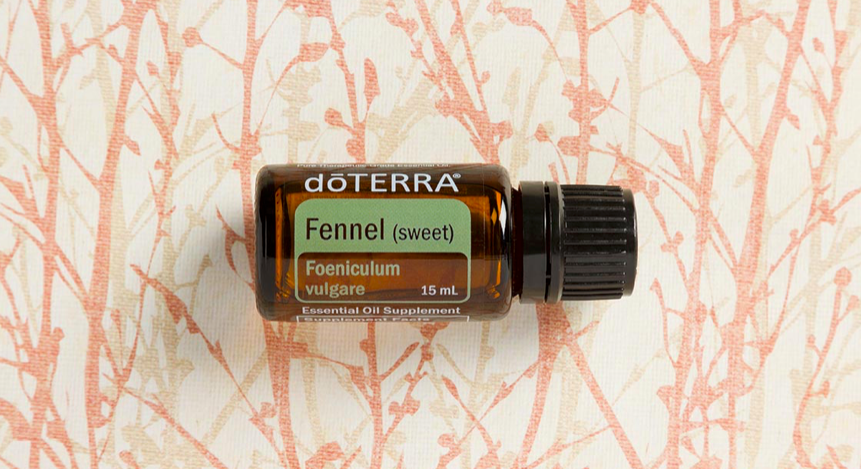|
Used for centuries in a variety of applications, fennel is known for its distinct licorice flavor and aroma. Today, Fennel oil can be used for culinary purposes as well as internally to promote a healthy respiratory system,* healthy digestion,* and more. This unique oil holds many beneficial characteristics for the body, while providing the user with a sweet, distinctive scent. Fennel Oil Uses and Benefits
Chemistry of Fennel Oil Main Chemical Components: E-anethole, fenchol, a-pinene Fennel essential oil is made up of monoterpenes and chemical components known for their energizing and uplifting aromatic properties. The chemical makeup of this oil contributes to the sweet, licorice aroma of Fennel. Trans anethole, the monoterpene phenylpropene which is the primary chemical constituent of Fennel oil, is distinctly sweet—13 times sweeter than table sugar. Fennel is also comprised of chemical components called ketones, which contribute to the calming properties of Fennel oil, as well as the oil’s ability to promote healthy respiratory function and healthy digestion, when taken internally.* |
Essential Oil Spotlight
Plant Description Fennel is an evergreen perennial native to the Mediterranean and is now typically grown in herb and vegetable gardens. Known for its licorice flavor and aroma, fennel produces flowers, fragrant leaves, and most importantly, fennel seeds—from which essential oil is extracted. Due to the potent aroma and distinct flavor of fennel, it has been used for years in the culinary world to add savor and spice to a variety of dishes. Emotional well-being Oil Description khjbnmbmnb (Taken from the book “Emotions and Essential oils”) |
Let us know about your experiences with this oil in the comments below.
